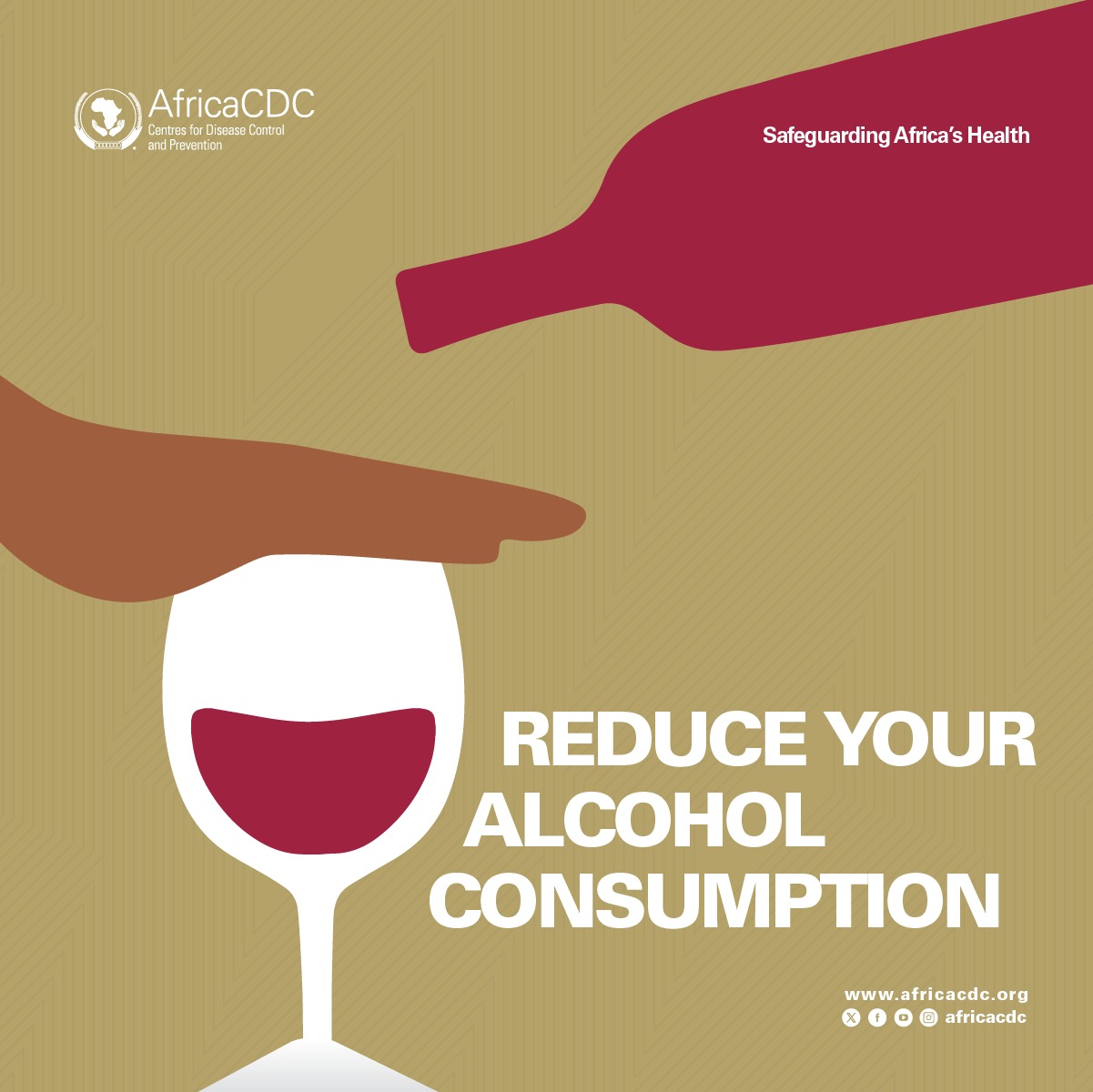Africa Centers for Disease Control and Prevention (Africa CDC) warns that, “alcohol is harmful to the liver”.
 |
| Hepatitis C Virus: ‘Reduce alcohol as much as possible’ – Africa CDC. Photo: @AfricaCDC |
The continental autonomous health agency of the African Union (AU) further warned: “If you have hepatitis B or C, one of the best things you can do for your health is to reduce your alcohol consumption as much as possible.”
According to africacdc.org:
Hepatitis C is a liver disease caused by the hepatitis C virus: the virus can cause both acute and chronic hepatitis infection, ranging in severity from a mild illness lasting a few weeks to a serious, lifelong illness. A significant number of those who are chronically infected will develop cirrhosis or liver cancer. The WHO Eastern Mediterranean region (Which includes some northern African countries) is the most affected region with prevalence of 2.3%. Depending on the country, hepatitis C virus infection can be concentrated in certain populations (for example, among people who inject drugs) and/or in general populations. There are multiple strains (or genotypes) of the HCV virus and their distribution varies by region.
The most common modes of infection are through unsafe injection practices; inadequate sterilization of medical equipment in some health-care settings; and unscreened blood and blood products. Today, most people become infected with Hepatitis C by sharing needles, syringes, or any other equipment to inject drugs.
The following list provides a limited example of primary prevention interventions recommended by WHO:
• hand hygiene: including surgical hand preparation, hand washing and use of gloves;
• safe and appropriate use of health care injections;
• safe handling and disposal of sharps and waste;
• provision of comprehensive harm-reduction services to people who inject drugs including sterile injecting equipment;
• testing of donated blood for hepatitis B and C (as well as HIV and syphilis);
• training of health personnel; and
• promotion of correct and consistent use of condoms.
For people infected with the hepatitis C virus, WHO recommends:
• education and counselling on options for care and treatment;
• immunization with the hepatitis A and B vaccines to prevent coinfection from these hepatitis viruses and to protect their liver;
• early and appropriate medical management including antiviral therapy if appropriate; and
• Regular monitoring for early diagnosis of chronic liver disease.


